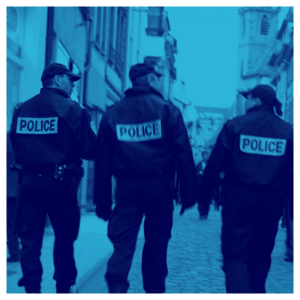Our series on Police Oversight Boards, the independent civilian committees responsible for reviewing police behavior continues with a review of cities with these boards. American Police Officers Alliance is committed to examining issues that affect law enforcement officers and their relationship with the communities they serve and these civilian boards have been a controversial topic the past few years with increased discussion of law enforcement accountability and recognition of the flaws in these boards. In this series we have looked at what is a Police Oversight Board, as well as who serves on them, and whether they’re short sighted.
Of the about 18,000 police departments in the country, about 200 cities have oversight boards currently in operation according to the National Association of Civilian Oversight of Law Enforcement (NACOLE). Seven of the top ten most populated US cities have these boards, ranging from cities as large as New York to as small as Brattleboro, VT (population about 11,000). All cities with police oversight boards are listed at the end of this post with links to the organization sites. To get a sense of the different types of boards and their impact, we are taking a closer look at boards in the midwest, west, south, and east cities.
Milwaukee
The Fire and Police Commission in Milwaukee, Wisconsin is one of the oldest boards, established in 1885 “with the goal of keeping politics out of public safety.” The board is made of seven commissioners appointed by the mayor and their backgrounds include community organization, judicial and legal experience with one retired fire lieutenant. Responsibilities include recruitment and testing new police and fire employees, hiding police and fire chiefs, auditing internal investigations, disciplining law enforcement employees for misconduct, and reviewing police procedures. Historically there have been some challenges with a national policing group study reporting in 2006 that the board was “out of touch with the community, didn’t police the police department, had a ‘broken’ citizen complaint system and took too long to decide the appeals of fired officers.” Reforms that were recommended in that report have been implemented. In 2018, tension surrounded the board with conflict between its executive director and the police chief which was followed by both of their departures. The relationship of the Fire and Police Commission is in development.
Houston
Houston has one of the newer boards with their Independent Police Oversight Board (IPOB) established in 2011 by Mayor Annise Parker. It is also one of the largest boards, with 29 members who have a variety of backgrounds in criminal justice. The effectiveness of the board has been a topic of discussion, as it does not have many resources, with no paid staff, and limited independence. The board does not decide what to evaluate, with the police department’s internal affairs department determining what will be reviewed. It can not tell the public what it is reviewing and does not have subpoena power. This board’s impact has been called into question and it is not clear that its existence is improving community relations or influencing police conduct.
San Francisco
 In San Francisco, similar questions have come up over the years about their Office of Citizen Complaints which was formed in 1982. In 2007, an audit performed by the city controller’s office found that “OCC management does not meet standard expectations for performance and management accountability.” The board worked to address the issues brought up in the audit, with some improvement, but was restructured in 2016 and renamed the Department of Police Accountability (DPA). The DPA’s recommendations have been found by the Department of Justice to have largely been ignored which indicates that the board and the department still have work to do before the DPA can have a positive impact on police conduct or community relations.
In San Francisco, similar questions have come up over the years about their Office of Citizen Complaints which was formed in 1982. In 2007, an audit performed by the city controller’s office found that “OCC management does not meet standard expectations for performance and management accountability.” The board worked to address the issues brought up in the audit, with some improvement, but was restructured in 2016 and renamed the Department of Police Accountability (DPA). The DPA’s recommendations have been found by the Department of Justice to have largely been ignored which indicates that the board and the department still have work to do before the DPA can have a positive impact on police conduct or community relations.
New York
New York’s Civilian Complaint Review Board (CCRB) is one of the most extensive boards with 142 civilian investigators, a dozen additional employees, and three police department members from the Monitoring and Analysis section of the Department Advocate’s office. The board has evolved several times since its creation in 1953 when the board was located within the NYPD. For more than 20 years the board shifted from civilian to police authority until 1993 when it became a completely civilian board. The board has worked closely with the department since that time and in 2017 recorded the lowest number of police-force complaints in more than ten years. Most recently the CCRB has contributed to tense situation where three parties have competing recommendations for a system for standardizing police discipline recommendations. A legislative was introduced, the CCRB has a recommendation, and within the department, a police commissioner created an independent panel made up of former prosecutors to review the current disciplinary process.
Conclusion
Police oversight boards are not having an obvious positive impact, and debates continue about whether the accountability should come from inside law enforcement agencies or external groups. It is also not clear how to appropriately create transparency and communication while repairing and strengthening trust with community. Both police and civilians continue to seek answers and better solutions because while they don’t agree on how to make things better, there is unity in seeing the need for improvement to benefit the community and the men and women that protect and serve.








